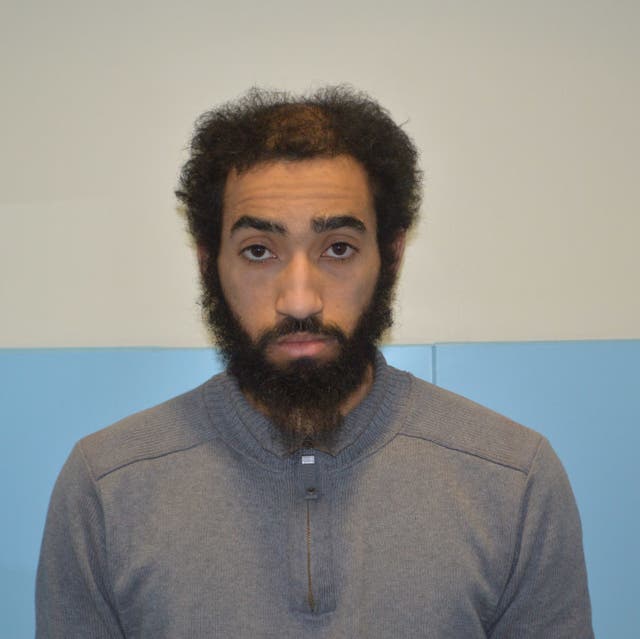Man convicted of terror offences tells judge his risk has been ‘exaggerated’
Ahmed Aweys was first convicted of terror offences in 2018.

A former teacher convicted of multiple terror offences has told a High Court judge that the risk he poses has been “exaggerated”.
Ahmed Aweys was jailed in 2019 for disseminating terrorist material and has returned to prison on multiple occasions for breaching licence conditions in the years that followed.
On Tuesday, lawyers for the Metropolitan Police asked a judge to issue a Serious Crime Prevention Order (SCPO), which aims to prevent people from getting involved in criminal activity.
Aweys, 39, represented himself at the hearing in London and asked the judge not to make the order.
Appearing in the dock at the Royal Courts of Justice in a green Adidas jumper, surrounded by three custody officers, he said: “My risk has been exaggerated for a very long time now.
“I have not associated with any individuals related to (terrorism). I have been very honest and transparent with professionals.”
He added: “I don’t see how it (the order) is justified. I just want to get on with my life.”
SCPOs can be imposed for periods of up to five years, with police chiefs allowed to apply to the High Court for such orders in cases involving terrorism offences.

The Government website says that the orders “protect the public by preventing, restricting or disrupting” serious crime and can involve a range of restrictions, such as who someone associates with or where they can travel.
Ella Crine, for the Metropolitan Police, told the court that Aweys, previously of Chadwell Heath, east London, was jailed for 25 months in 2019 after admitting to disseminating terrorist material, including a link to an Isis propaganda magazine and a video which contained footage of executions.
He returned to custody three months after his release for using an unregistered mobile phone, which Ms Crine said was used to “contact sex workers” and “access multiple websites known to contact extremist material”.
In March 2022, he was sentenced to three years in prison for further offences and then recalled to prison while on licence in September this year after being seen turning the computer screen away from CCTV cameras in an internet cafe.
He is due to be released on November 28 and will be under some restrictions until January 2031, but Ms Chine said in written submissions that these were “insufficient” and that an SCPO was needed to “mitigate the real risk” posed by Aweys.
She said: “He has not desisted or demurred from the beliefs which underpin those offences and has instead continued for a substantial period of time to be considered to pose a risk of terror-related offending.”
The court heard that Aweys, who came to the UK when he was young, had previously worked as a mechanical engineer and an English teacher.
He said he took “full responsibility” for his most recent return to prison, but said the “unfortunate” incident was “being used to paint me as high risk all over again”.
Mr Justice Chamberlain imposed the SCPO but ruled that it should only run until December 17 to allow Aweys to get legal representation, stating that there was “sufficient” evidence to justify an order “for a short period”.
A further hearing to decide the full length of the order will be held on that date.





